My recent Comment (RAIL 930) about the growing prospect of highly damaging com-pulsory seat reservations really stirred up a hornets’ nest in Open Access (RAIL 934).
RAIL has been warning about this danger for some time, and a seeming reticence by LNER in particular to commit to reinstating the old system is fuelling suspicions that its compulsory reservations might become permanent. I agree that reservations were required during COVID restrictions, but they should now be scrapped.
There are some very strong opinions around the industry. Rail-Review Board Chairman Sir Michael Holden said: “There MAY be a case to be argued about reservations for some long-distance fares, but compulsory reservations are an abomination. We have a walk-up railway with the fares to support it.”
Compulsory reservations will indeed damage the Anytime fare model. We have a tradition and culture of a hop-on, hop-off railway and we undermine that at our peril.
Holden: “It is already difficult for passengers to negotiate timetables and ticket buying, without putting yet further obstacles in their way. A key advantage of the Anytime ticket is that you come back when you like - compulsory reservations mean that a major condition of the product has been changed. The model of flexibility on which our system has been built will have been sabotaged.”
That’s a very strong word for Holden, given he was once responsible for the East Coast Main Line, as chairman of Directly Operated Railways. As I understand LNER’s emerging thinking, walk-up LNER travel will, strictly speaking, still be possible. But the offering is very limited. Walk-up passengers will be restricted to Coach C in Standard Class, and for First Class a designated part of a single coach. LNER intends to “strongly recommend” reservations, which can be done online at the time of purchase, before departure on a smartphone app, on the station at a ‘pod’ - and even when you board, as the Train Manager and his or her staff will be able to do this.
LNER insists that its thinking has been informed by Open Access in RAIL 934, with the aim of ensuring that all the problems and concerns raised are dealt with. Its thinking is certainly nuanced and superficially logical. But it is not widely shared. Far from it!
Anthony Smith, chief executive of passenger watchdog Transport Focus, is fundamentally and unambiguously opposed to greater emphasis on seat reservation: “I absolutely hate it - we need to go back to where we were. The walk-up railway is fundamental. Pushing reservations is short-termist, producer-led and anti-consumer.”
Smith’s sentiments are heavily endorsed by Mark Smith, the widely respected ‘Man in Seat 61’ travel and bookings expert for international travel. He points out the east-west divide in Europe, where France, Italy and Spain run long-distance reservation-only systems in which they can yield-manage the full capacity of the train. This results in 85% loads where every seat is sold at the fare the system dictates.
East of that divide, the Benelux countries, Germany, Switzerland, Austria and Denmark all run versions of our own pre-pandemic system, with optional reservations. Mark’s observations are highly relevant in informing the debate about what sort of railway we want - is it for the benefit of passengers or operators?
“In France, once you’ve booked, you’re stuck with that seat, and if the promised ‘window’ turns out to be a pillar, or you find yourself on the landward side of the train along the scenic Côte d’Azur, you can’t simply swap seats. It makes rail a much less attractive, welcoming and enjoyable choice.
“No longer, before you board, can you say: ‘I’ll get the next train - I fancy another drink with friends.’ You can’t jump on and seek out your favourite seat or one which suits the journey, so you can enjoy the views which may be important to you. You can’t go and join a friend you see on board, moving to a pair of empty seats so you can sit together. If you have a toddler, you can no longer find two unreserved seats and plonk the infant next to you. These might seem like trivial issues - but they aren’t. And there’s quite a lot of them.
“The down side, of course, of not having a reservation is that you might have to stand, so reservations will be sold to us on the basis that it’s all about getting a seat - but that’s not true.
“This isn’t about the 300 passengers who get a seat. It’s about the 301st and after, who don’t. What does an operator do when all seats are taken? Leave customers on the platform with no options? Tell them to take the next train?”
Mark’s conclusion: “There’s a reservation-only business model that I suspect some train operators secretly like, because they can achieve high occupancy through aggressive yield management as well as completely avoiding damaging overcrowding stories.”
I have no problem with short-term reser-vation-only travel at busy Bank Holidays or in the run-up to Christmas - and this is not new. The West Coast has been doing it for several years. It makes sense. But not all the time.
Great Western Railway Managing Director Mark Hopwood is also clear. He’ll have nothing to do with reservation-only railways: “Reading-Didcot is just over 11 minutes, so reservations would be impossible. Those passengers are on an inter-city train, but it’s a local journey. GWR carries a mix of passengers, some of whom wish to reserve seats and many who don’t. We have to make the railway attractive to all.”
Those who quote the airline model overlook the key fundamental that air travel is point to point - you don’t stop umpteen times at maybe half-a-dozen intermediate stops. It is true that pre-pandemic around 80% of LNER passengers reserved seats, but that remaining 20% is a big number to discourage by making their experiences less convenient, less enjoyable, less flexible, and more complex.
In News (pages 6-7), you’ll see the Public Accounts Committee’s highly critical report, which excoriates both railway and Government for their joint lack of a compelling plan to attract custom back to the railways by genuinely placing the passenger at the heart of the experience. It’s telling that with the exception of LNER, of which I am otherwise a huge supporter, every voice I spoke to (and I haven’t quoted them all) vehemently opposed moving towards compulsory reservations. Such concensus is almost unheard of.
As Mark Smith suggested, this is probably more about yield management for an operator than it is about customer convenience, because those wonderful rail attractions of spontaneity and mobility are eroded and then destroyed by increasing pressure to reserve seats.
Only a few weeks ago, the Williams-Shapps Plan for Rail clearly committed to the importance of the walk-up railway. Given the differing views in the industry, however, it’s clear that an early defining moment is approaching which will reveal just how serious that Plan really is.

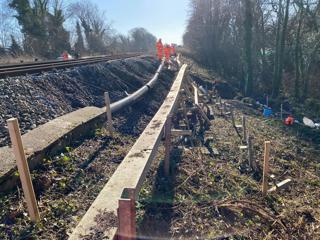
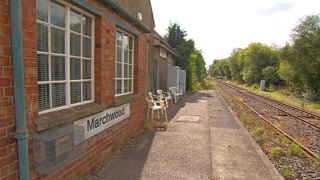
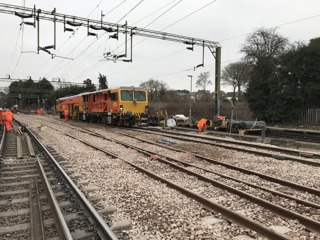
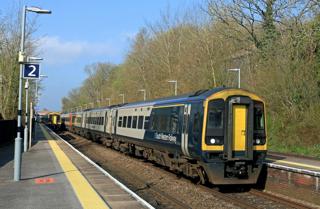
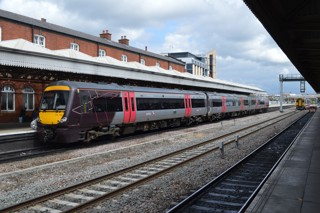











Login to comment
Comments
No comments have been made yet.